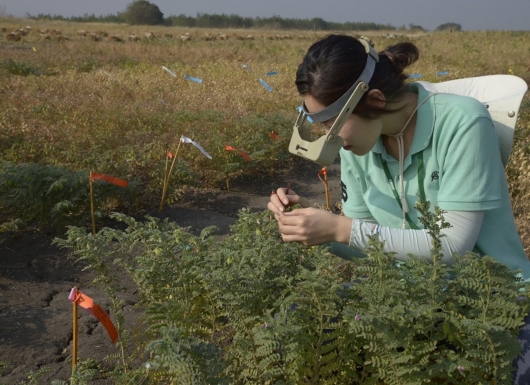Submitter: (ICRISAT)
Ecosystem services are critical for environmental sustainability and human well-being. However, despite their importance, these services are often undervalued or overlooked in policy-making and land-use planning due to a lack of systematic mapping and quantification. Current methodologies for assessing ecosystem services tend to be fragmented, with a major focus on provisioning services and insufficient integration of ecological, socio-economic, and environmental services. Therefore, there is an urgent need to develop comprehensive, spatially explicit approaches for mapping and quantifying ecosystem services that are scalable and applicable across various ecological and socio-economic contexts.

Conceptualization involves defining what ecosystem services are and how they contribute to human well-being. It includes identifying the types of services (provisioning, regulating, cultural, and supporting), their sources in the ecosystem, and the beneficiaries. This stage sets the foundation for assessing how natural systems support societal needs and helps clarify the goals and scope of the mapping and quantification effort.
Methodological framework refers to the structured approach used to assess and represent ecosystem services. It typically includes the integration of ecological models, GIS-based spatial analysis, remote sensing data, field surveys, and socio-economic indicators. Various frameworks, such as the Millennium Ecosystem Assessment (MEA), the Economics of Ecosystems and Biodiversity (TEEB), or the Integrated Valuation of Ecosystem Services and Tradeoffs (InVEST), guide the methodology, ensuring consistent and comprehensive evaluation. Understanding trade-offs involves analyzing how enhancing one ecosystem service may lead to the reduction of another, especially when land-use changes or management interventions are involved. For example, converting a forest to farmland may boost food production but reduce carbon storage and biodiversity. By identifying such trade-offs, this process facilitates balanced decision-making that considers both ecological sustainability and human development needs.
This concept is applicable across a broad spectrum of agro-climatic zones, including arid, semi-arid, sub-humid, and humid regions.
ICRISAT has demonstrated in the Central Indian landscape that with increased moisture availability, fallow lands in respective landscapes have been converted into productive cultivation, thereby enhancing crop intensification. These landscapes have produced 100%–300% higher crop yields, greater income generation (>100%), and improved water productivity. Landscape-based interventions were also found to be beneficial in terms of reducing soil loss by 75%–90%, enhancing biodiversity, and improving base flow by 20–75 days in a year compared to control conditions. With enhanced groundwater recharge, all previously defunct wells have become functional, and the time required to irrigate one ha of land has reduced from 120 hours to just 20 hours. Increased opportunities for crop intensification have significantly reduced large-scale outmigration, while the burden on both women and men to secure domestic and irrigation water has lessened. These positive changes have also improved the socio-economic conditions of households, with better access to drinking water and a reduction in school dropout rates.
Regenerative practices are adaptable to diverse agro-climatic zones and can be integrated into existing farming systems, their positive impacts on ecosystem services are relevant across many landscapes. The use of remote sensing, GIS, and ecological models enables scalable and replicable assessments that inform targeted interventions at the farm, watershed, or regional levels. Successful adoption requires capacity building for farmers and extension services, supportive policies that incentivize sustainable practices, accessible data and mapping tools for monitoring, and collaboration among stakeholders to align agricultural goals with ecosystem service outcomes. Robust monitoring frameworks are also essential to evaluate long-term benefits and guide adaptive management
KH Anantha, anantha.kanugod@icrisat.org
Niranjan Padhan, niranjan.padhan@icrisat.org